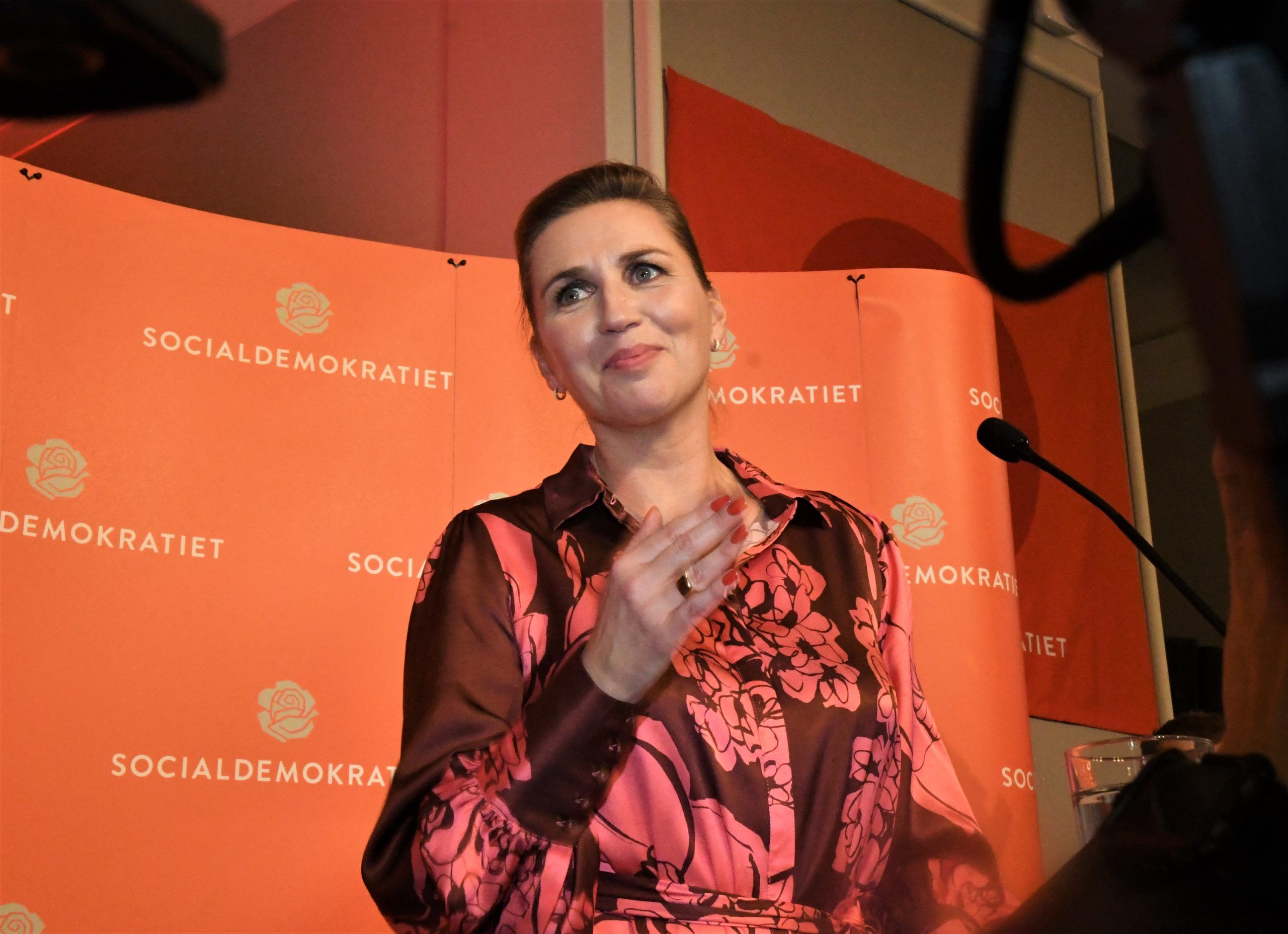It’s already been 12 days since the 2022 General Election, and not much has happened yet!
One thing’s for sure, though. PM Mette Frederiksen might have dissolved her government on November 2, as is customary the day after an election, but she remains very much in charge.
Negotiations for a majority, entwined with forming a new government, have been ongoing in earnest since Friday November 4.
Yesterday, Frederiksen said that a new government was not on the horizon, so negotiations could conceivably continue for some time yet!
Coalition on the cards
The current government is made up entirely of members of the PM’s party Socialdemokratiet. But that looks likely to change with the new set-up, with as many as four parties represented in the cabinet.
Frederiksen had exactly the right number of mandates to form the same Red Bloc majority that took her into power in 2019 – 90 of the 179 seats in Parliament. But that is a slender majority – some would call it fragile.
Frederiksen clearly favours forming a party down the centre and it is highly likely she will exclude allies Radikale, whose ultimatum led to the election being held eight months earlier than scheduled, and Enhedslisten.
Down the centre
New party Moderaterne, led by two-time PM and election kingmaker Lars Løkke Rasmussen, will undoubtedly be there, as he has so far been involved in almost all the negotiations.
Together, Socialdemokratiet and Moderaterne have 66 mandates – who will join them remains to be seen.
But were they to involve the parties closest to the centre, it would probably be Venstre and SF, who together have 38 mandates – a comfortable majority of 104.
Venstre u-turn
Venstre leader Jacob Ellemann-Jensen has performed something of a u-turn in the last fortnight.
Initially joined at the hip with Konservate leader Søren Pape Poulsen – to be fair, the latter was always the ventriloquist’s dummy – he has switched from not trusting the PM to being entirely open to working with her.
Nevertheless, his inclusion – some are tipping him to be the next foreign minister – is not certain. But it is thought Rasmussen has had a big say in Venstre, his former party, being at the table.
Exit polls misleading
The negotiations followed a vote in which Socialdemokratiet, with 27.5 percent of the vote, secured two more mandates than in 2019, its best result since 2001 and, crucially for the excitement factor for the viewing public, 4.4 percentage points more than what the exit polls predicted!
The exit votes were also wide of the mark regarding Danmarksdemokraterne, which ended up with 14 mandates. The party ended up on over 8 percent after exit polling at 6.9.
In fact, throughout the entire duration of its coverage, DR projected the Red Bloc missing out on a 90-mandate majority by one seat, only to update this right at the end, once all the votes had been counted.
Before their chickens hatched
Up until that point, Blue Bloc supporters genuinely believed they still had a chance to command a majority! The exit poll had only predicted the Red Bloc winning 85 mandates.
On election night, Venstre political spokesperson Sophie Løhde suggested Rasmussen should join the Blue Bloc and forget about the centre, providing he backed Ellemann-Jensen as PM.
Even Konservate leader Søren Pape Poulsen seemed upbeat despite ending up with just 5.5 percent – ten mandates – a far cry from the 16 percent his party was polling in early September before the scandal over his untruthful husband and their subsequent divorce.
He started the night contemplating a majority, but ended it insisting he wouldn’t step down.
Big winners
Liberal Alliance: What a turnaround for a party that was struggling to survive after the election in 2019. Jumping from 4 to 14 mandates spells a massive success for Alex Vanopslagh’s party.
Moderaterne: After founding Moderaterne just months ago, Rasmussen must be over the moon that his party stormed into Parliament with 16 mandates.
Danmarksdemokraterne: Inger Støjberg and Danmarksdemokraterne also made a dream election debut, sweeping into Parliament with an impressive 14 mandates – a 1.2 percent gain on the share predicted in the exit poll.
Big losers:
Venstre: Support fell 13.3 percentage points compared to 2019 – a loss of 20 mandates to end with 23 – to hand the party its worst election result in 34 years.
Radikale: It lost over half of its mandates, to slip from 16 to just seven.
Dansk Folkeparti: The party ended up with just 2.7 percent of votes – its worst performance in history.
See factbox below for more key figures from the election.














